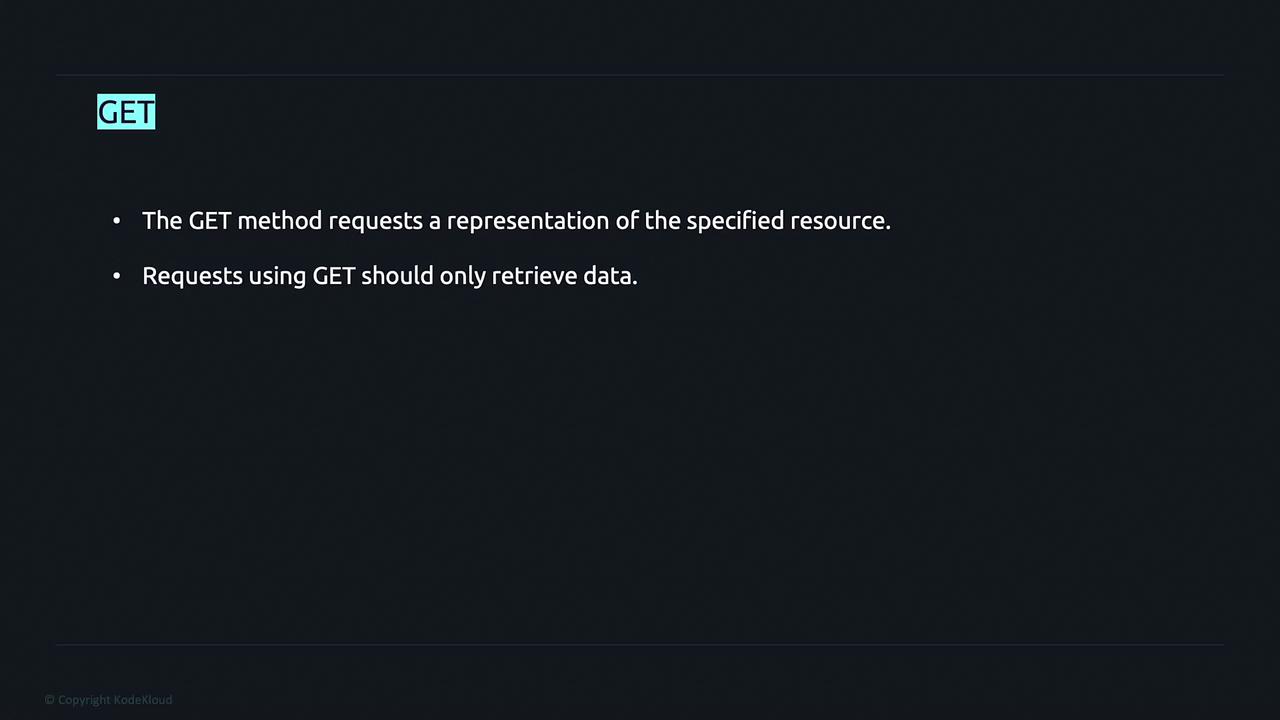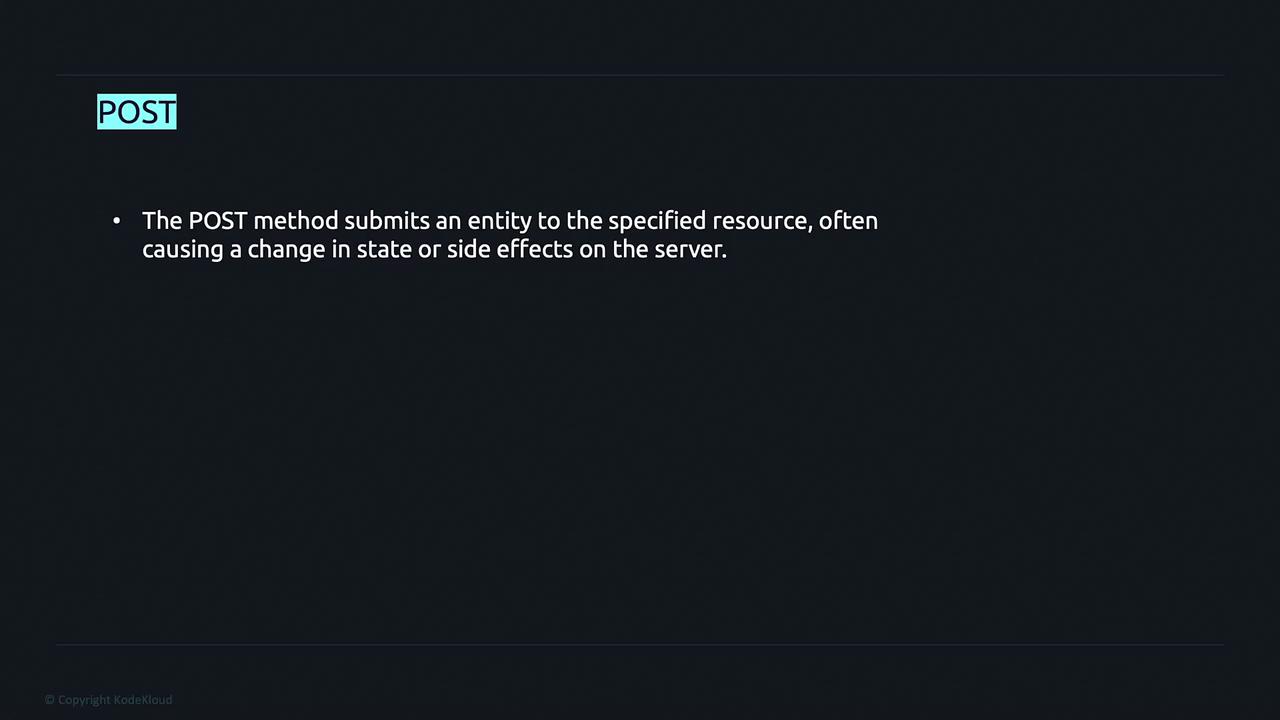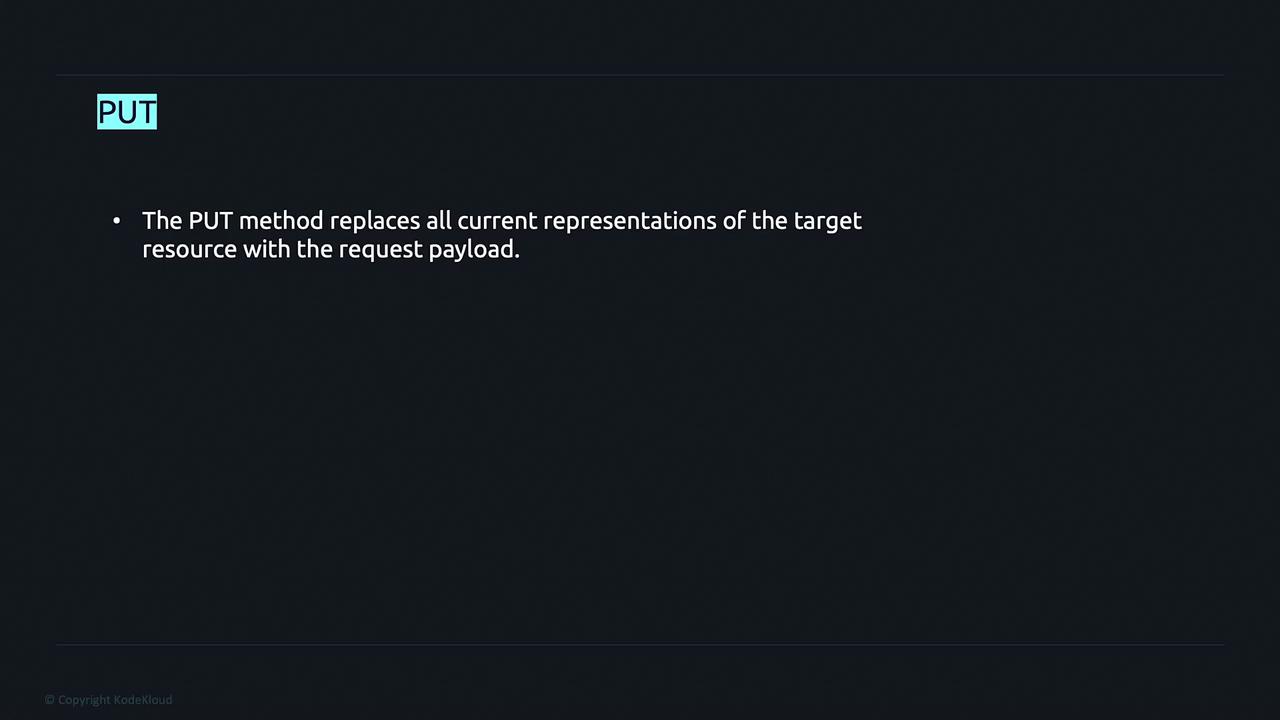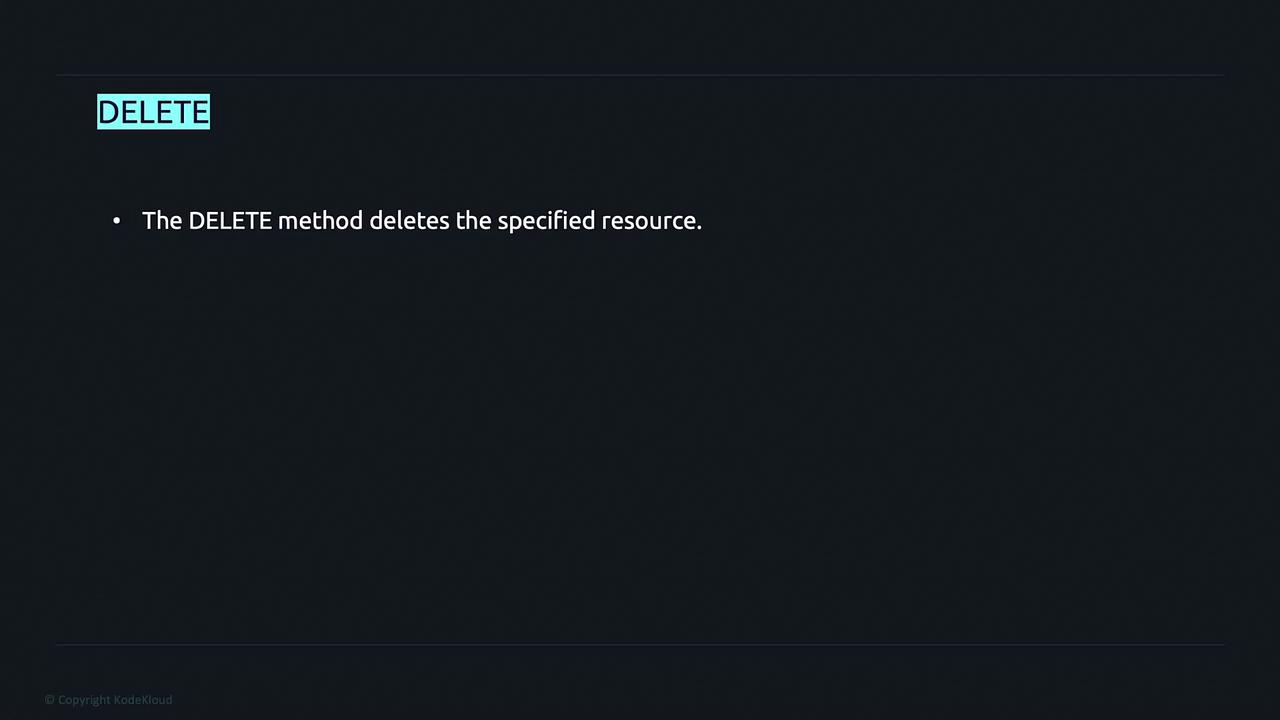GET Method
The GET method is used to request a representation of a specified resource. Endpoints defined with GET should strictly retrieve data without causing any side effects, ensuring safe and idempotent operations.
Ensure that GET requests do not alter the resource state on the server.
POST Method
The POST method allows you to submit data to a specified resource. This operation often results in the creation of a new resource or triggers a change in the server’s state. In the context of CRUD, POST is typically associated with the “create” action.
PUT Method
The PUT method is designed to update a resource. It replaces all current representations of the target resource with the data provided in the request payload. Use PUT when you need to perform full updates to existing resources.
When updating partial resources, consider using the PATCH method instead of PUT for efficiency.
DELETE Method
The DELETE method allows for the removal of a specified resource from the server. This operation is essential for managing data lifecycle and cleaning up unnecessary resources.